How do Progressive Countries Deal with their Junks?
Does the outside beauty adhere to the inside? In here, we will be able to know how such bountiful, progressive countries dealt with their trash considering their population count, and also the money that goes in and out the country.
Here are the top five countries who rule the ranking when it comes to richness according to International Monetary Fund’s October 2017 data on GDP per capita based on purchasing power parity or PPP. Purchasing Power Parity is a philosophy which asserts that exchange rates between currencies are in equilibrium when their purchasing power is the same in each of the two countries. Note that International Monetary Fund is an international organization that surveys and monitors economic and financial developments, lend funds to countries with balance-of-payments difficulties, and provide technical assistance and training for countries requesting it. So, we can rely on that the data being gathered and exposed are all facts that underwent extensive study and observation.
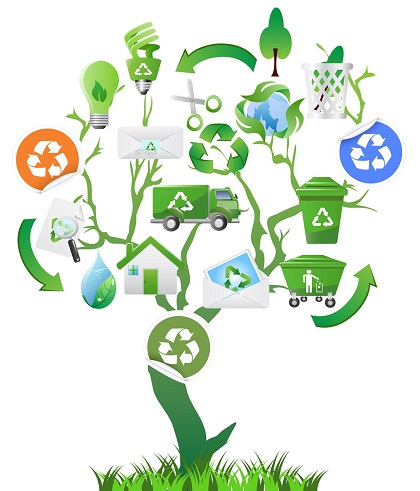
The management of solid waste continues to be a major challenge in urban areas throughout the world, but particularly in the rapidly growing cities and towns of the developing world. But as you can see, with every country's massive population that could lead an immense utilization of food. And remember, nowadays, it's so hard to find and buy foods that aren't packed with non-biodegradable stuff. So, after the consumption, where do these wastes go? How the most progressive, extravagant, visited places handle their debris?
Richest Countries in the World Per Capita
1. Luxembourg
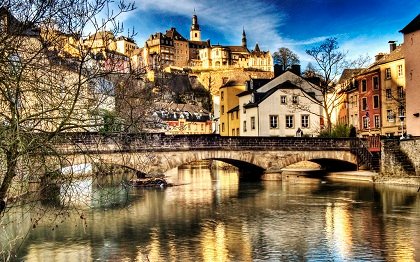
Luxembourg is a small European country, surrounded by Belgium, France, and Germany. Luxembourg’s total population is 0.6 million in 2017, with GDP of 8.58 billion USD and an unemployment rate of 5.5% in the same year. The economy of Luxembourg is generally reliant on the banking, steel, and industrial sectors. After so many years, Luxembourg is now the top and richest country per capita GDP in the world.
Municipal waste treatment, in addition to the separate collection and recycling centers, is under the responsibility of 116 municipalities, regrouped in the three main inter-communal syndicates in use if two controlled landfills and one incineration plant, correspondingly, with energy recovery. Certainly, due to Luxembourg’s small territory, it does not have the whole range of recycling or recovery installations, same goes for separately collected municipal and specific waste streams collected through recycling centers or schemes, which are, consequently, sent abroad for valorization or other treatments.

Domestic facilities are less justified than in the past, but because of ‘Waste Prevention and Management Plans’ (Plan de Prévention et de Gestion des Déchets’, PPGDs)existence that caters the industrial, commercial and service waste, remaining quantities to be eliminated are now a less burden. Non-household waste for disposal is shipped to specialized facilities in nearby countries, mainly in Germany, France, Belgium and the Netherlands.
Mostly used in agriculture for fertilizer is the sewage sludge generated each year through spreading or composted compound. Inert waste, consisting primarily of construction materials, demolition waste, and road maintenance waste have to go to specific disposal sites where they are recovered, particularly through grinding operations or landfilled once recovery is not possible.
2. Macao SAR (Special Administrative Region)
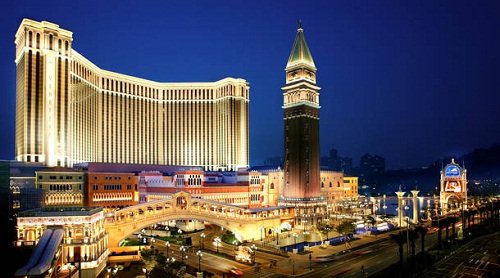
Based on the latest United Nations estimates, as of Saturday, January 6, 2018, the current population of the Macao Special Administrative Region of the People's Republic of China (also referred as Macau) is 0.64 million as of 2017. Macau, like Hong Kong, is a special administrative region (SAR) of greater China that operates under the “One Country, Two Systems” principle. The service sector, particularly the tourism and gaming industry, significantly leads its economy, providing over 90% of GDP output.
The rapid economic development and population growth in Macao have resulted in a tremendous increase in the quantity of solid waste generated. Domestic solid waste is the primary component of solid waste generation, and a considerable amount of the solid waste generated can be recycled and reutilized. Due to Macao's small geographic area and a high cost of land, landfilling has the lowest priority for waste disposal. Solid waste incineration has been set a primacy over other waste disposal methods even though it is much more lavish.
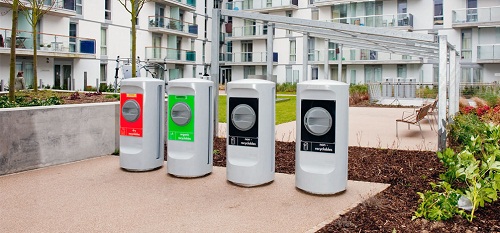
For an effective and efficient solid waste management in Macao, future challenges are anticipated to include the following four phases:
(1) waste minimization needs to be implemented strictly in order to reduce the amount of solid waste.
Although the Macao Government started waste segregation and recycling campaigns in the 1990s, these measures have not been practiced widely due to some constraints.
(2) an effective waste collection and disposal fee system should be established.
The absence of a waste collection and disposal fee will be the biggest obstacle to reduce the amount of solid waste in Macao because there is no financial incentive for waste generators to participate to a greater degree in waste minimization
(3) some alternate measures should be taken in response to the declining capacities of landfill sites and incinerators.
(4) the establishment of new regulations for a more effective and efficient integrated solid waste management system is also necessary.
The regulations should indicate the appropriate authority to define and implement waste management policies.
3. Iceland
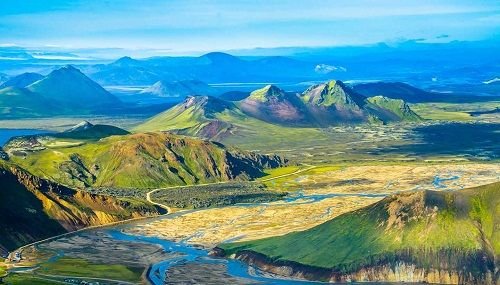
Iceland is a realm known for its dramatic landscape with volcanoes, geysers, hot springs and lava fields. Geothermal power is the primary source of home and mechanical energy in Iceland.
Iceland topped the list to be crowned the most liberal nation on earth. It has a small population of just 0.34 million of people, but it’s the closest to achieving gender equality with the smallest gender pay gap in the world. It is also one of the most eco-friendly, and approximately 85% of its energy comes from renewable sources.
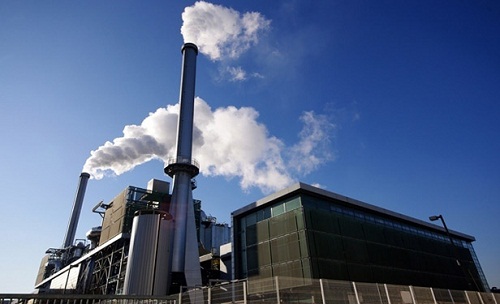
The implementation of government policies and more efficient waste management has improved waste treatment in the last decade. Recycling and composting has increased while the application of landfill has decreased as its approach was being discouraged. Technical improvements are seen in incineration. Incineration is decreasing and moving from primitive technology towards high-temperature incineration with energy recovery.
Recycling is growing fast in Iceland, especially composting and plastics recycling, with innovation in treatment technologies. However, the main part of collected and sorted recyclable wastes such as plastic, cardboard, and paper are exported to recycling facilities in Europe.
4. Switzerland
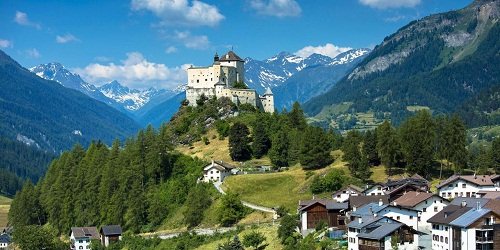
Aside from being the world’s most expensive country to live in, and has low business corruption, high economic competitiveness, economic freedom, low unemployment rate and high quality of life, Switzerland is well-known for its wealthy, powerful and high-tech economy. Switzerland’s total population is 8.51 million in 2017, and with the life expectancy of 82.70 as recorded in 2012. The economy of Switzerland is one of the world’s stable economies. Its policy of long-term monetary security and political stability has made Switzerland a haven for investors, creating an economy that is increasingly dependent on a steady tide of foreign investment. For the reason that the country has a small area and high labor specialization, industry and trade are the means to Switzerland’s economic livelihood.
Switzerland has a successful waste management policy. But although the Swiss are great recyclers, they are among the worst offenders in terms of the quantity of rubbish produced.
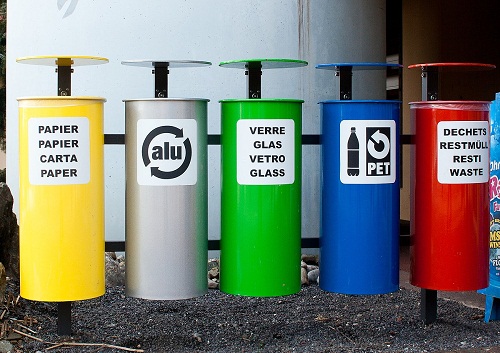.jpg)
Poor waste disposal infrastructure and the rubbish tax have been blamed for the situation in Naples, as has the low recycling rate. In addition to that, the existence of the Neapolitan version of the Mafia called Camorra, which has a hand in the waste business. Aside from the talking with Swiss waste incineration companies, Naples has resorted to reopening old landfill sites and exporting rubbish to other regions of Italy and to Germany.
The ideologies for the preeminent handling of waste to ensure a low impact on health and the environment have long been acknowledged. The European Union has set out four Rs: reduce, reuse, recycle and recover. Switzerland, although not a member of the EU, is considered a model in waste disposal. More than five million tons of urban refuse was produced in the country in 2006, of which around half was recycled. Most of the rest was incinerated.
5. Norway
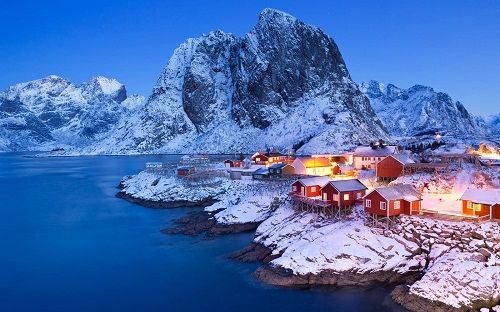
Norway is classified among the top countries in the world in terms of having the highest standard of living, has a perfect universal health care and as the largest producer of natural gas and oil in the whole world excluding the Middle East. Due to its abundance in natural resources or much, we call raw materials such as minerals, natural gas, petroleum, hydropower, fresh water, and seafood, Norway’s economy mainly depends on its extensive assets. Since it was ranked before as the most democratic country in the world, you can also enjoy a high quality of life, low unemployment rate, and democracy.
Norway’s total population is 5.4 million with GDP of 406.46 billion USD and a low unemployment rate of 3.8% as of 2017. Although sensitive to global business cycles, the economy of Norway is a developed mixed economy with state-ownership in strategic areas and has shown robust growth since the start of the industrial era.
Norway uses waste as eco-friendly fuel. The bin bag which is full of household waste has become one of Norway's fuels of choice. Klemetsrud plant, largest energy recovery facility in Norway, is where the waste is thrown out by millions of households from Norway, Britain and elsewhere and is turned into heat and electricity for the city of Oslo.
"We have created such an overcapacity in these power plants in Norway and Sweden. We have made ourselves dependent on producing more and more garbage."
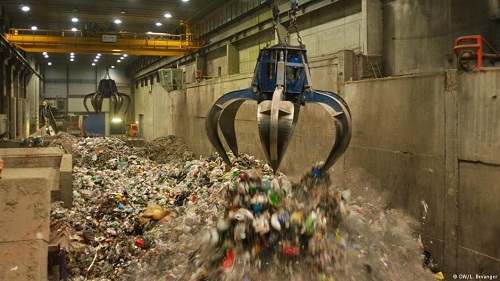
The process is minimal as the waste, tonne by a tonne of it, will be dropped into an incinerator. It soars to 850 degrees. Sneak a quick look through a small porthole of toughened glass and you’ll the fire as it burns bright orange with a fierce roar of flames. Not everything is burned like old tin cans and some mattress springs. At the end of the process, they are left with ash, a metal which is recycled - and a lot of heat as being shown in their operation.
pheew ! everyone will be shocked when revealed with their hidden agendas...
hahaha what's that ? behind the veil ? :D